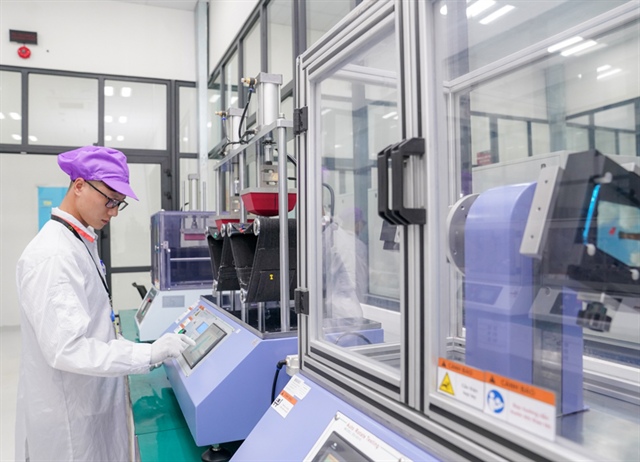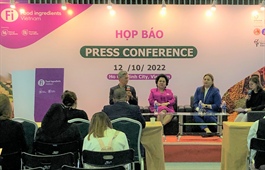Vietnam strategy targets sustainable production
Vietnam strategy targets sustainable production
Vietnam is shifting to more sustainable production in accordance with its goods import-export strategy to 2030, which places green development, ecological industries, renewable energy, and circular economy models as the country’s new driving force.
The strategy, developed by the Ministry of Industry and Trade (MoIT), prioritizes electronics manufacturing, eco-friendly goods, forestry-agricultural products and textiles. It also identifies five operational focus areas - commercial competition and digital transformation, innovation and entrepreneurship, quality, standards and certifications, sustainability and inclusion and trade facilitation.
At a recent seminar on “Global Trends and Vietnam: A National Trade Strategy Perspective” organized by the Swiss Trade Policy and Promotion Program, Pamela Coke-Hamilton, Executive Director of the International Trade Center, said perfecting industry-specific strategies is vital, as is facilitating trade and creating more jobs in priority sectors.
Nicole Wyrsch, Chargé d'Affaires of the Swiss Embassy in Vietnam, said Switzerland has focused on supporting the promotion of sustainable standards, low-emission and zero-carbon production and digital commerce, as well as compliance with the rules-based trading system. Wyrsch added that Switzerland seeks to create favorable conditions to promote sustainable development and trade with Vietnam, thereby contributing to enhancing the capacity Vietnam's national competitiveness in the supply chain.

Businesses are motivated to develop green products |
Due to the complex nature of the global landscape, the goods import-export strategy to 2030 faces significant challenges. According to Assoc. Prof. Dr. Bui Quang Tuan, Director of the Vietnam Institute for Economic and Policy Research, Vietnam must closely follow trade policies that promote market expansion and support small and medium enterprises, especially those focused on sustainable development, and integrate green growth goals with the implementation of international trade commitments.
At the same time, authorities must ensure that products meet the fast-moving green transformation standards of markets such as the European Union. Policies need to adapt to new trends, create motivation for the development of green products and invest in new industries to meet the requirements of green transformation.
Tuan also emphasizes the importance of better economic planning by the government, connecting policymakers, businesses, consultants, scientists, and banks to further facilitate a circular economy.
| The Swiss Trade project, funded by the Government of Switzerland, aims to assist Vietnam in improving the trade and international competitiveness of small and medium-sized enterprises by creating favorable framework conditions for trading, strengthening the public-private dialogue mechanism, and creating a dynamic ecosystem. |























